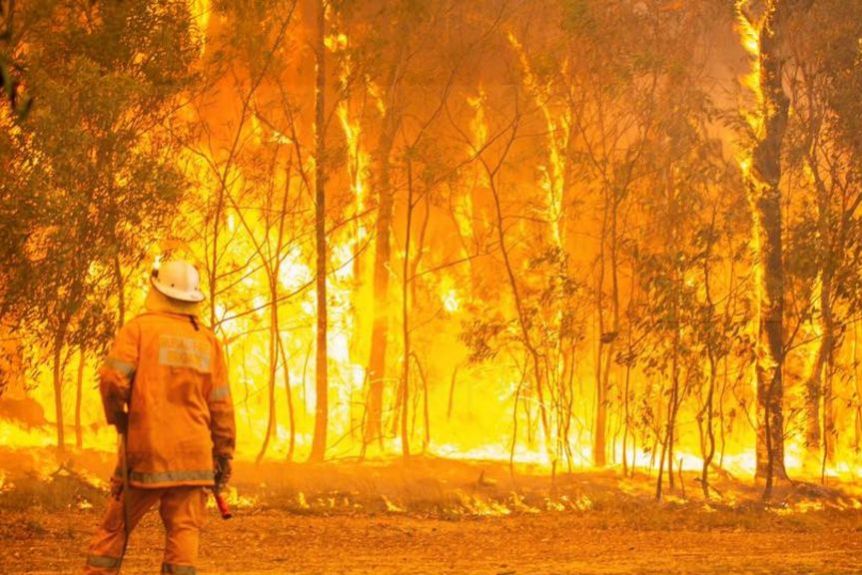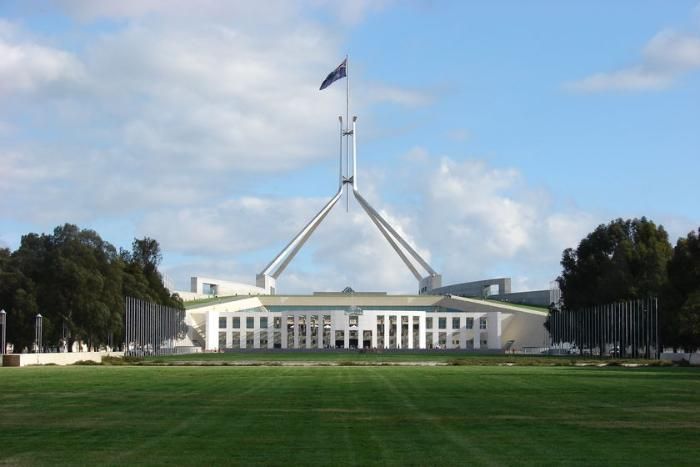 The virus effectively wiped the political slate and took all kinds of pressing issues off the agenda. At the same, time major government messages displayed a kind of bipartisanship perhaps reserved only for times of true crisis. On the most recent episode of Seriously Social, renowned political journalist and academic Michelle Grattan shares how the virus has changed Australian politics and industrial relations and how it might change the landscape into the future.
The virus effectively wiped the political slate and took all kinds of pressing issues off the agenda. At the same, time major government messages displayed a kind of bipartisanship perhaps reserved only for times of true crisis. On the most recent episode of Seriously Social, renowned political journalist and academic Michelle Grattan shares how the virus has changed Australian politics and industrial relations and how it might change the landscape into the future.
This TLDR (‘Too long didn’t read’) is the shortcut to E8 of Seriously Social: ‘How the Virus Made Politics Mutate’. You can tun in to the full conversation between Michelle Grattan and host Ginger Gorman at seriouslysocialpodcast.org.au or on your favourite podcast platform.
COVID-19 has transformed Australian politics with a move away from destructive partisanship.
“We’ve seen the hyperpartisanship that’s characterised Australian politics in a very negative way in recent years really disappear. That’s not to say there’s not some partisanship and as we move through this crisis and move to the other side, that partisanship is reemerging. But it is not the sort of destructive partisanship that we saw before.
The whole national debate, the preoccupation of the public is on what’s to be done, how great the threat is, how do you mete it, how serious the health threat was likely to be, and of course, we’re not completely through that yet, but we’ve done very well on it.”
At the same time, we’ve seen other issues completely swept under the rug during this crisis.
“And it’s not quite clear what’s going to happen to those issues. For example, I think that there’s no chance now that we’ll see the referendum on indigenous recognition, which certainly the Minister, Ken Wyatt, had hoped to run in his term. It was always, I thought, a bit of a longshot that there would be enough agreement to put a referendum forward with a reasonable chance of success, but now that’s really gone.

Ken Wyatt MP
And as for religious freedom, well, that legislation was probably more trouble, frankly, to the Government than it was ever worth. And so, if that disappears, it won’t matter much. Whether it will disappear for good is another matter. But certainly, no one’s talking about these issues at the moment.”

Centrelink
Centrelink’s contentious Robodebt will not be something that’s forgotten among the corona headlines.
“I think it will be regarded as a really bad program and a total overreach and that the Government has rightly got its comeuppance on this. The fact that it was such a problem really caused the Government to say, ‘Well, let’s give all the money back. Let’s not argue about this.’ And of course, that was prompted by the court action.

Prime Minister Scott Morrison
The crisis is an opportunity for the Morrison government, but whether they can take advantage is a question.
“Clearly, the prime minister wants to try to get some reform out of this very bad situation and get some positive aspects. He’s talking industrial relations and he’s set up a process there. Because the Government and the employers and the unions have had to talk through this crisis and have been brought together in a compulsory sort of way by circumstances, there is some opportunity to make progress on certain issues. But how far they will get on those issues is another matter. There are all sorts of ambit claims floating about.”
The pandemic looks set to bolster the incumbent government coming into the next election.
“I think that the attention now will be on how the economy comes back and the extent to which the economy does come back, the speed of that, if we still have high unemployment by the time of the next election, then that’s difficult for the Government.
We are quite a long way, of course, from the election. Early-2022 is the due date. It could be late-2021, but a lot can happen in that time. So, the prime minister is well set up at the moment and I think if there was an election today, there’s no doubt that he’d win it and probably win it handsomely. And there’s no doubt that Labor and Anthony Albanese are having trouble cutting through. But there’s a long way to go.”
The Morrison government is spending money to get the economy out of ICU, which it has thanks to the $60 billion JobKeeper miscalculation.
While it’s said that the government doesn’t want to extent or broaden its JobKeeper package, it’s obviously producing additional measures for particular sectors, for the housing industry, for the arts. And I think tourism too, quite clearly will come. So, it is throwing quite a lot of money out there.
Of course, it saved quite a lot of money or not having to spend the money due to the miscalculation of the JobKeeper program, which was out by some $60 billion, which leaves a lot of leeway. It doesn’t want to spend anything like that, but it does have a few billion up its sleeve to put out to particular industries. And it has shown itself willing to do what it takes to try and get the economy going as fast as possible.
There are opponents on both the left and right who think the government overreacted with shutting down the economy and issuing wage subsidies.
There have been criticisms from the right that the whole health threat was exaggerated, that the Government spent too much, that it overreacted with wage subsidies. So, it is interesting that after this is over, the criticism might be not just from the right, but others too that the Government in economic terms did more than it had to do. We don’t know that yet, but that could be the criticism. If so, it would be an absolute repeat, of course, of what happened when Kevin Rudd’s government put in a very large stimulus package, or two of them, but the second one was very large. Nothing like we’re seeing now, but still large in its time and what did the coalition say? They said, and they’ve been saying for a decade or more, “You did too much. You spent too much.” Well, everything seems to happen twice.

Photo: News Video
The Morrison government’s COVID response was informed by their ill-handling of the bushfires, and reinforced state power.
I think he learnt that you had to act quickly when you faced a crisis situation. Now, with the fires, he thought it was okay to go overseas to take a holiday because that had been planned and he didn’t anticipate either that things would get as bad as they did in terms of the fires or that people would react so strongly against him when he appeared not to be behaving as a national leader should. So, in personal terms, he gained some political sensitivity, some savviness, I think.
In terms of political structures, he concluded during the bushfires that the states had the power. So, when it came to the pandemic where this question of power distribution was actually much more important because it covered a whole range of things and more states, he did set up this new structure, the national cabinet, which dealt with this question that the states actually had the power and the commonwealth didn’t have a lot of formal power.

Parliament, Canberra
From immigration to export industries, the pandemic’s affect on politics into the future will be manifold.
In the next year, the debate will be very much focused on job creation, the problems of particular sectors trying to get things back to normal and trying to define what that normal is in our current climate.
The huge question will be when the Australian borders can be opened, the national borders and how that is done, what sort of conditions are put on people coming in. And flowing from that will be what happens to our education export industry, and our immigration program. We’ve had huge numbers of people coming in, both permanent migrants and temporary workers, and that’s now not happening. Well, that has a lot of flow-through effects. So, how is that all going to work out in the next two or three years?
During economic recovery, noncore economic issues will be pushed to the side.
They’ll come back to an extent, but I think that the attempt to return the country to prosperity, how long that takes, what form that prosperity takes will be the dominant political issue in the next one to possibly more years to come.
Tune into seriouslysocialpodcast.org.au
